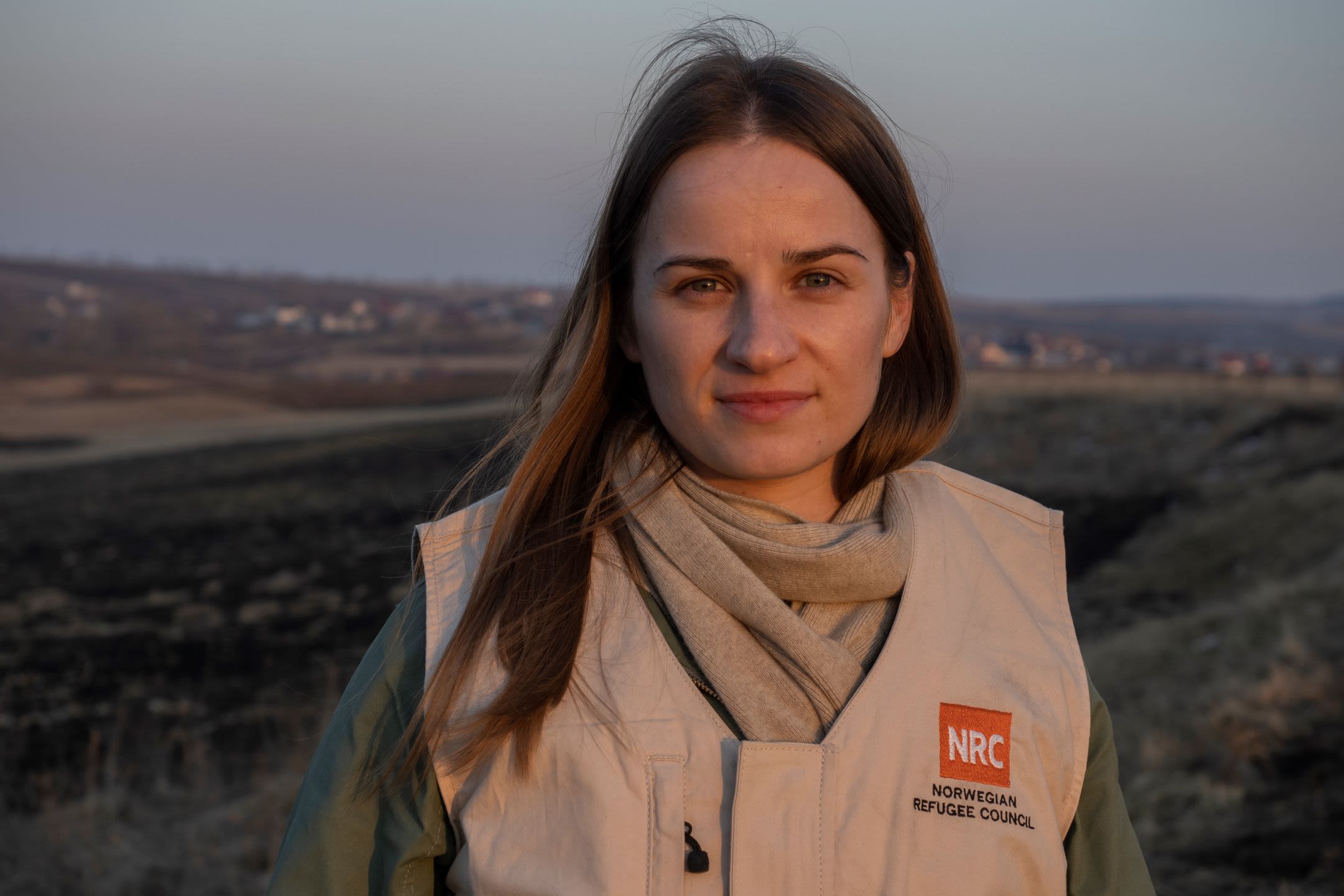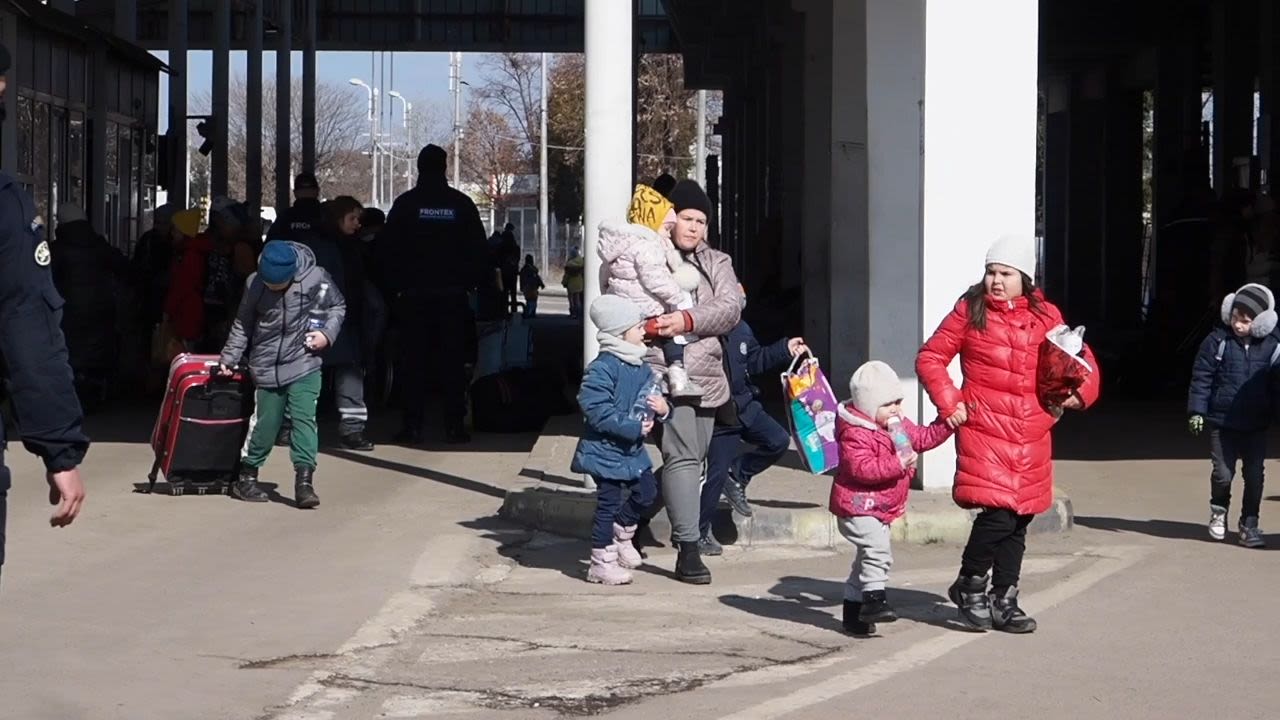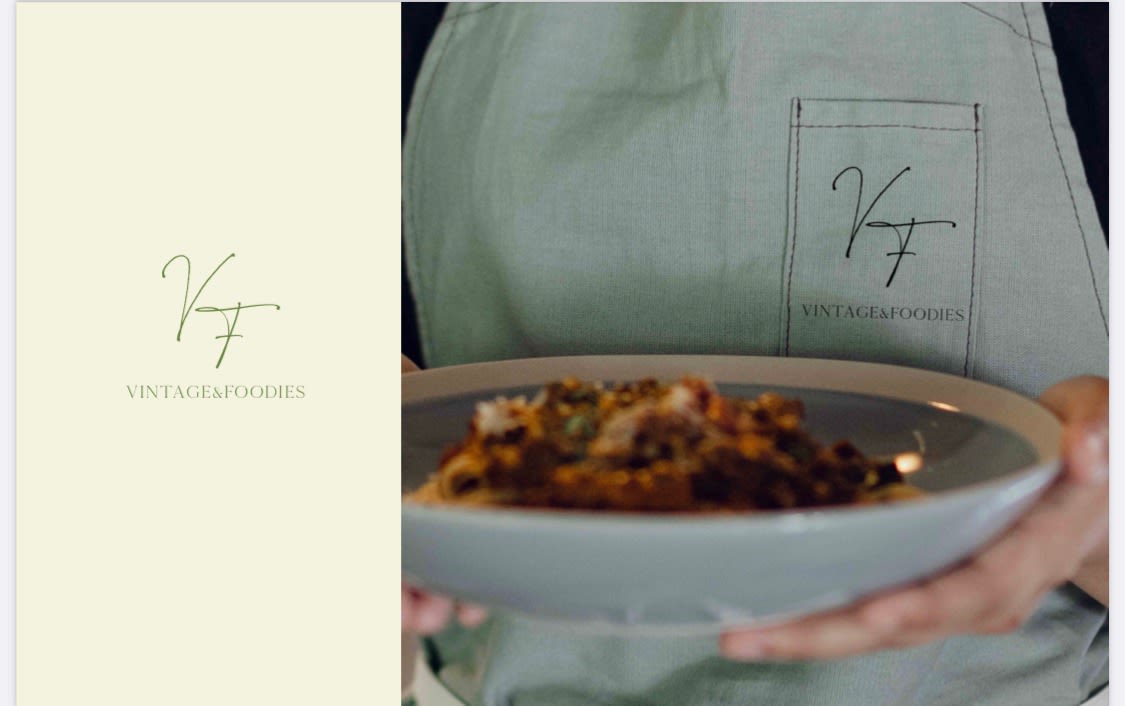On the border of Ukraine
Liliia’s inner fight

“It was a difficult decision to leave. To be honest, I felt like my heart was bleeding. And now I am trying to help – to do something at least, within my power, to help my people.”
Liliia Derkach, 32, fled her home in Ukraine just a few weeks ago. Now she’s working for the Norwegian Refugee Council (NRC), helping us to scale up our operations over the border in Romania.
The Norwegian Refugee Council (NRC) works to support refugees and displaced people in over 30 countries around the world, including Romania and Ukraine. Support our work today.

We meet Liliia at an old farmhouse in northern Romania. The building has been converted into a temporary shelter for families fleeing the fighting in Ukraine.
When we arrive, Liliia is deep in conversation with a Ukrainian refugee family. Her manner is quiet but full of empathy. She listens attentively to the family’s concerns, advising them on their rights and where to get the information they need.
Later, during a break in the work, we sit down together. In the cold but peaceful Romanian countryside, Liliia tells us her story.
The restaurant dream
We were going to start a restaurant in Kyiv. One week before the war started, we were supposed to open it. Everything was ready. We were doing the logo and finalising things.
The next day, we received a call from my partner’s mother, and she said: “They’re bombing! They’re bombing right now, so you have to do something and try to leave.”
The restaurant is there, but we couldn’t open. We just packed everything – whatever we could pack – and then we left our house in Kyiv.
The bombing begins
We left the house in the early morning, about an hour after the bombing started. It was very, very early in the morning and many people were still sleeping. And then we saw the queues at the gas station. People were starting to panic.
We had to wait for an hour for gas. We were thinking to go to Ivano-Frankivsk, but we realised that we didn’t have enough gas and there was no place that we would be able to get it.
So, we decided to go to Moldova because there was the closest gas station we could get to from Kyiv.
A traumatic crossing
We waited 12 hours to cross the border. You see the queue of cars – all of them are Ukrainian – full of everything that they could take from their houses. And then you see children, and everybody is exhausted, tired, scared. Women crying, with their parents with them. They’re just terrified. They don’t know where they’re going.
“You see children, and everybody is exhausted, tired, scared.”
And there were many people who didn’t have cars, who didn’t have the opportunity to go by car, and they were crossing with just one piece of luggage, with children. Waiting hours to cross.
My partner is not a Ukrainian national, so he was able to cross the border. But Ukrainian men between the ages of 18 and 60 were not allowed to leave the country. It’s mostly just women and children who can cross.
Many women are still in Ukraine. But if they have really small children, they take them abroad, because they don’t want them to experience the bombing. It’s really traumatic for children.

“I started to cry”
When I finally got across, I had, like, a contradiction… a fight inside me. On the one side I was happy that I was safe and bombs would not kill me, but on the other side I felt so… I started to cry.
“I had, like, a contradiction… a fight inside me.”
My heart was bleeding that I was leaving my land and I wasn’t there, in the middle of the fighting, helping somehow those children and old people.
There are many old people in Kyiv who are alone. Nobody helped them, and some of them have disabilities, so for them it was difficult to leave their apartments. So…you feel horrible, honestly.
I have family in Moldova and they helped us to get back to our senses for two days. And then we decided to come here to Romania, closer to the border with the west of Ukraine, and try to support somehow.
I found out that NRC would need some support here on the Romanian side, and I was happy to help. And I’m trying to help as much as I can, because I know people need it right now.
A new mission
We are setting up a mission here to support those who are crossing the border from Ukraine.
The first step was to see what the situation at the border was like, to identify the needs and work out how NRC can support to reach as many people as we can. So, we’re talking to the government authorities both here in Romania and in the Republic of Moldova.
The first week we visited two border crossings. I talked to the Ukrainians that crossed to gather as much information as I could. Do they want to register as refugees? What are their plans? What do they need, how do they feel, and how can NRC support?
I’m involved in designing the cash transfer programme. We are trying to understand if people have bank cards or access to Ukrainian banks, and if they will be able to receive cash under that system.
Information is critical
In addition, I’m monitoring the legislation, in case there are updates that it’s important to know.
Information is critical here. People are confused. What does it mean to be a refugee? What rights do they have? Do they need to register in Romania? Do they have a right to work?
“People are confused. What does it mean to be a refugee? What rights do they have?”
It’s important to remember that right now, in Ukraine, there’s a lot of disinformation. So people are very concerned about what information is available and whether it’s a credible source.
Memories of home
As we talk, Liliia’s thoughts turn to home and family.
Kyiv is super beautiful, full of talented people. And always you can find festivals, and concerts, and music. Fantastic restaurants. People are very nice, and there are so many activities. I just love it, and I love Ukraine. For me right now, seeing what’s happening, it’s heartbreaking.
My family are in the Mykolaiv region, in the south of Ukraine. It’s a town next to a nuclear power station and I’m really worried that it might be a strategic object for attacks.
It’s difficult, because I understand my family not wanting to leave. They say it’s their house, it’s their belongings, it’s their land – and they just don’t want to leave it behind.
And I share that feeling, because it’s my country too. I was born in that family house, and all my memories are there.
“I was born in that family house, and all my memories are there.”
When I come home, my mum always cooks a lot, and the table is full of different dishes. And we just sit, the whole family, and we have a chat. And that is really important – we always kept that tradition – and now we are not able to do it, because we are far apart, and spread out, and scared.
And I would love to have that opportunity to join the table and just see all my family safe.
And what of the restaurant?
It’s a small place – the capacity is 16 people – and the idea was to change the menu every month and use ingredients from local farms. So we could mix and have nice dishes for those who like to try new things, experiment with the food flavours.

The menu from Liliia's restaurant in Kyiv. Photo: Liliia Derkach
The menu from Liliia's restaurant in Kyiv. Photo: Liliia Derkach
That was the idea, and we had the menu all ready and everything. I just didn’t have a chance to implement it.
But I will. At some point I will.

